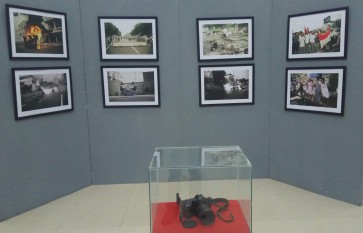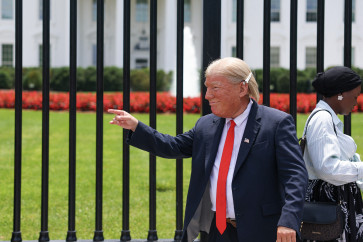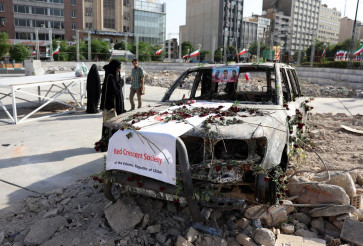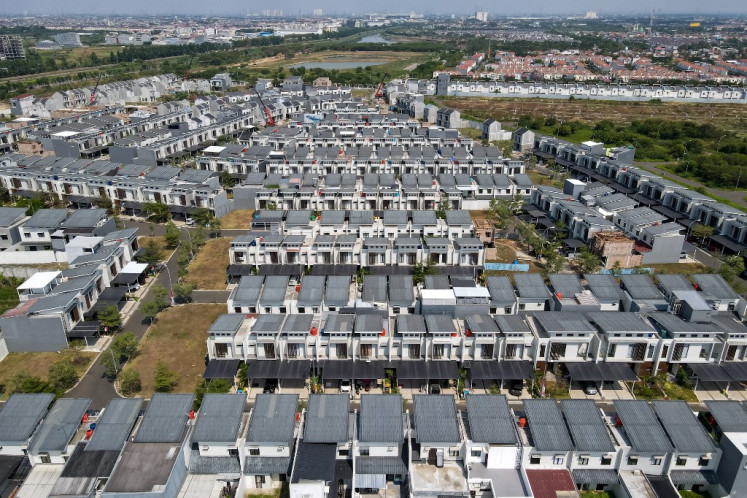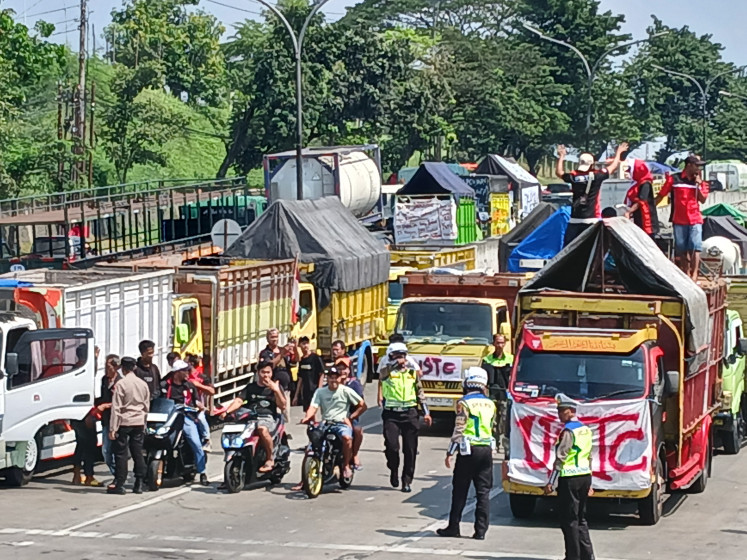Popular Reads
Top Results
Can't find what you're looking for?
View all search resultsPopular Reads
Top Results
Can't find what you're looking for?
View all search resultsPertalite to be off limits for certain customers
Government hopes smartphone app will curb sales of subsidized gasoline.
Change text size
Gift Premium Articles
to Anyone
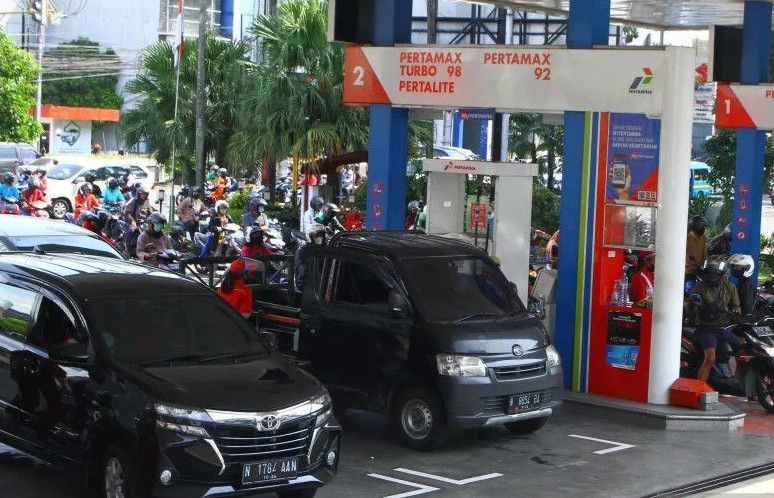
S
tate-owned oil and gas company Pertamina plans to deploy digital technology to restrict the sale of Pertalite, its subsidized RON-90 fuel, as well as its diesel fuel Solar.
By registering customer vehicles through a smartphone app, Pertamina aims to ensure that people who are ineligible to purchase the subsidized fuel are prevented from doing so. The government has kept Pertalite's price fixed despite the skyrocketing cost of oil in the global market.
The high oil prices mean that state funds allocated for fuel subsidies cover a smaller amount of fuel than they otherwise would.
Pertamina president director Nicke Widyawati said imposing quotas by digital means could prevent a shortage of the subsidized fuel, as consumers that did not meet eligibility criteria would be automatically barred from purchasing the fuel.
On April 1, the government raised the prices of Pertamax, which has an octane rating of RON 92, and other unsubsidized types of gasoline by up to 35 percent, which has prompted an exodus of customers from unsubsidized fuels to subsidized fuels.
Read also: Consumers stunned by rising food, energy prices
“We will implement the [digital solution] as soon as we have decided on the criteria, so that if someone does not meet the requirements, the nozzle will not release [the gasoline],” Nicke said during a media gathering on June 8.
To obtain the subsidized fuel, customers would need to register their vehicle's license plate number on the application, Nicke explained, claiming that this would reduce the risk of consumers dodging quotas and eligibility requirements.
“Now we are compiling data on vehicles that will be [eligible] to receive a maximum of 200 liters [per day, because] the bad thing is, they [now] buy 150 liters, then buy another 150 liters [in a day, and so on]. So the total could be 2,000 liters in a day. […] The system [we have created] will help [prevent such incidents],” Nicke continued.
Irto Ginting, corporate secretary of Pertamina subsidiary PT Pertamina Niaga, said policymakers were in the process of finalizing a draft for the revision of Presidential Regulation No. 191/2014, which regulates fuel distribution and retail pricing and stipulates eligibility criteria for the purchase of subsidized fuel.
He added that the policy would be implemented gradually, beginning with regions that already had sufficient infrastructure in place, while postponing the rollout to regions that lacked such infrastructure.
Robust mobile data networks would be an infrastructural requirement for app-based systems.
“Later on, there will be a public campaign and a pilot project […]. Hopefully, the government subsidy will actually be accepted [only] by the people in need,” he said in a written message to The Jakarta Post on Tuesday.
In a video interview with CNBC Indonesia on June 6, Downstream Oil and Gas Regulatory Agency (BPH Migas) head Erika Retnowati said the quota policy would be introduced in August or September of this year, with eligibility to revolve around the cubic capacity (CC) of a vehicle's engine.
“Why CC? Because we recognize the consumption factor: a high-CC [engine] will consume a lot of fuel, and they are designed not to consume Pertalite, due to [certain] engine specifications, and over time this could even damage the engine," Retno said.
The Indonesian Crude Price (ICP) is well above US$100 per barrel, far above this year's state budget assumption of $63, compelling the government to increase spending on energy subsidies and compensation for energy companies.
“State service vehicles are not allowed to use Pertalite […]. Details regarding the CC eligibility criteria are still being discussed, and we will announce those later,” Retno continued.
In a House of Representatives meeting on June 8, Retno stated that, as of May, the volumes of Pertalite and Solar distributed across the country this year had reached 11.69 million kiloliters and 6.75 million kiloliters, respectively, amounting to 50.74 percent and 44.77 percent of the yearly quotas.
On April 13, Energy and Mineral Resources Minister Arifin Tasrif proposed to the House that the full-year quotas for Pertalite and Solar be increased by 5.45 million kiloliters and 2.29 million kiloliters, respectively.
"We have prepared several key measures to deal with rising world oil prices. In the short term, we propose changing the quota for certain types of fuel, namely Solar, kerosene and Pertalite. Then, [we will also] adjust the price of unsubsidized fuel," Arifin said.
Indonesian Consumers Foundation (YLKI) head Tulus Abadi said the policy could reduce people’s purchasing power by forcing long-time Pertalite buyers to shift to Pertamax.
"If Pertalite users migrate to Pertamax, the price increase [for them] is Rp 5,500 per liter, which is much higher than the increase in the price of Pertamax itself, which rose from Rp 9,000 to Rp 12,500," Tulus told the Post on Saturday.
Tulus urged the Social Affairs Ministry to update its database on people’s welfare as a basis for determining eligibility for subsidized fuel, so as “to make it more equitable and comprehensive".
The plan to ration subsidized gasoline sales comes at roughly the same time as the government is hiking, by up to 17 percent, electricity rates for what are usually larger or more luxurious properties, affecting the upper-middle class.
Read also: July 1 electricity hike to save state Rp 3.09t
Center of Economic and Law Studies (CELIOS) director Bhima Yudhistira said the quota system would generally hurt that segment’s purchasing power more than the electricity price hike and thus reduce discretionary spending.
“More spending on fuel could translate into less spending on other things, such as electronics, gadgets and household appliances […], which may [cause] businesses to reconsider expansion plans,” Bhima told the Post on Tuesday.

